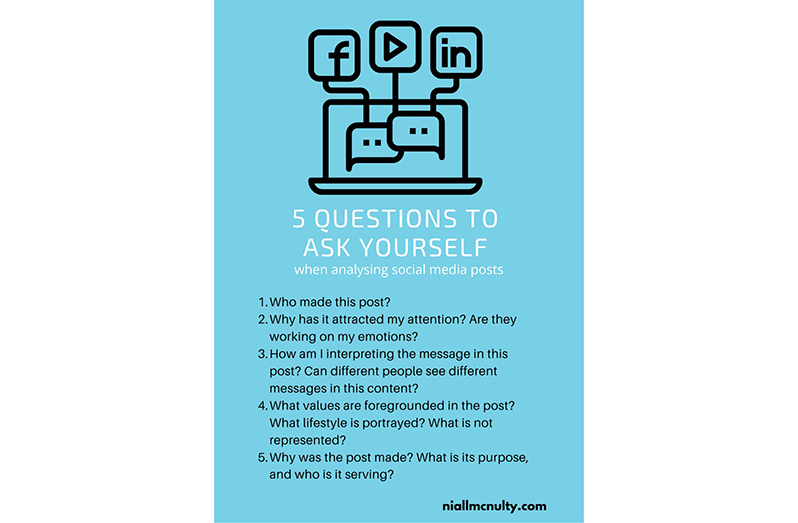CAN you critically engage with social media content? Can you analyse the messages being communicated through social media content? If the answer is yes to both questions, you are most likely social media literate. Social media and its usage have skyrocketed in recent years. Certain platforms have turned regular people and creators into international celebrities and “influencers”. Many of these creators compile and create content full-time—it’s their form of employment. The amount of money certain creators make on social media is astronomical, and it is reflected in their lifestyle and the content they create.
With that in mind, I want you to understand that most of what you see through the eyes of social media creators is curated inauthenticity. It is pure fiction. Some content creators portray the lifestyle of a glamorous stay-at-home mother or independent artist, but that is not necessarily the case. Their “content”? It may be created based on marketing strategies. Their lifestyle? It can be made up to make you believe this is how they actually live. Their motives? It can be purely for profit and money and nothing else. This is why social media literacy is very important when it comes to accessing and interacting with content online.

Do you remember the era of “family YouTube channels” prior to the pandemic? Have you noticed that there was a decline in those viewerships? There can be an explanation for such and it may be people’s realisation and understanding of the authenticity behind such content. Most people have realised by now that not every family channel had a “perfect family” because of the recent upsetting news reports that broke out with many of them. However, this form of awareness and critical content analysis should not be limited to family channels only. A critical analysis may be you asking the “why”, “how, “when”, “where” questions when an “influencer” tells you to purchase an item or service.
Are they affiliated with this company? Are they paid to tell me to purchase this item, or is it really a good item to purchase? You should be able to dissect the intent of the content to begin with because, unfortunately, most content on social media is purely made to maximise profit. Social Media Literacy is also important because it prevents the spread of misinformation and disinformation. If you’re critical of the content being published, you would check the sources of the content, fact-check the information presented and understand intent yet again. The lack of literacy in social media also causes cybersecurity hacking and bullying. You simply do not click on a link and start sharing your information immediately. You should check to understand and see if it’s a legitimate and safe site to use or if the services offered are even real.
Unfortunately, many people lose millions of dollars annually due to cybersecurity vulnerabilities while using social media. I believe it is our responsibility to ensure we use social media in keeping with the application’s community guidelines and with our moral compass at work. We must be mindful of the content we consume, share and interact with because it may do more harm than good to ourselves and others around us. You should be able to use less emotions and more critical thinking when analysing content. I think there’s no escaping social media. Even online classrooms require you to join a social platform. Nonetheless, that doesn’t mean that we shouldn’t be mindful of how we use social media and what we see. After reading this column, I hope you start to realise these patterns and make better decisions moving forward. Happy scrolling!



.jpg)








